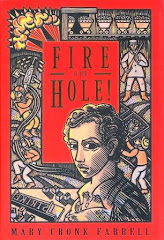
Organizers of Spokane’s terrific April 2009 literary festival Get Lit! have encouraged local writers to post a blog on or about March 4th on what keeps us writing. So here goes.
Americans who have fought for equal rights throughout history, that’s who keeps me writing and researching. Activists like Harvey Milk in1970’s in San Francisco who led the charge for gay rights, so well portrayed by Oscar winner Sean Pean in the 20087 movie Milk. Unfortunately that battle still needs to be waged.
During Black History month, I’d like to honor Octavius Catto, a brilliant orator, educator and athlete who stood up for equal rights a hundred years before Martin Luther King and Rosa Parks. President Obama has often said he stands on the shoulders of civil rights’ leaders who have gone before him. One of them is Catto, who in 1871 was murdered on the streets of Philadelphia by Democrat party bosses because of his dynamic community organizing of new black male voters. I discovered Catto during research for a book on civil rights activists.
And every day Octavius Valentine Catto inspires me to keep writing, no matter the economy or fewer readers every year. I love this man and will do my best to honor his story and other American activists by sitting down to the computer every morning. Claire Rudolf Murphy













